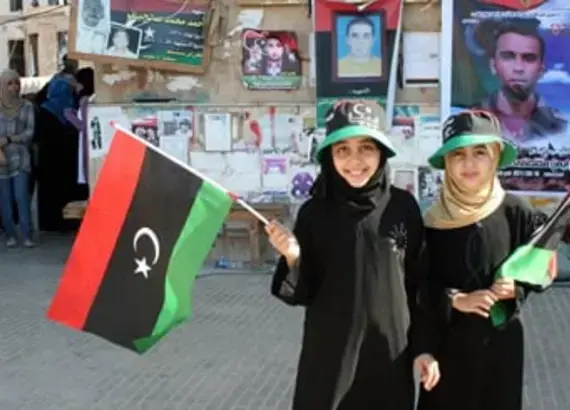
Success Story
With Elections in Sight, Libyans Concerned about Security, Country's Direction
As the political transition proceeds in Libya, leaders continue to struggle to meet public expectations on key issues such as security, political reform and standard of living, according to a new public opinion study by NDI.
From April 10-20, the Institute examined citizens’ opinions through 12 focus groups in six cities across Libya. The research took place two months before anticipated elections for a national public congress (NPC), which will be tasked with overseeing the drafting of a new constitution. Libyans view the approaching elections with great enthusiasm.
NDI’s research was designed to capture citizen sentiments about the political landscape and expectations for the next phase of Libya’s transition. Here are some key findings:
- In general, Libyans are concerned that the goals of the 2011 revolution have not yet been realized and that progress is too slow. The most commonly cited areas of apprehension relate to security and the complicated, opaque political environment. Some respondents cite reasons for optimism, such as the flourishing of civil society, new freedoms and small improvements in local security.
- Libyans are enthusiastic to participate in elections for the first time, seeing voting as a fundamental right and a vital act of self-expression. Awareness of the upcoming elections, however, is low, and may, with other barriers such as security, dampen voter turnout. Citizens want more information about the electoral process and political contestants.
- Opinions about political parties have improved considerably compared to a prior study conducted by NDI in November 2011. Though still hampered by decades of negative propaganda during the reign of ousted leader Muammar Gaddafi, political parties are beginning to convince citizens of their positive contributions to the transition.
- Support remains consistent for moderate Islamic principles in the political sphere; most Libyans want and expect Islam to play a role in political life. They struggle to define a cohesive picture of moderate Islam, but often point to tolerance over extremism as a core principle.
- Citizens expect to play a role in the constitution-drafting process, which will be led by the elected NPC. Expectations of the NPC are inflated, in part due to misunderstanding of the body’s projected roles and functions. Some respondents anticipate that the NPC will address issues like security, infrastructure and health, while in fact its mandate may be limited to overseeing constitution-drafting.
- Widespread criticism of the National Transitional Council (NTC) and transitional national government (TNG) reflect the challenges these institutions face in addressing the public’s expectations and communicating with citizens. Libyans harbor concerns about the transitional government’s ineffectiveness, lack of transparency and susceptibility to corruption.
NDI relies on these findings to provide Libyan decision makers—in political parties, civil society organizations and the transitional government—with timely, relevant information on public opinion that can inform policies and make them more responsive to citizens’ interests and needs. The results of this study can be evaluated in comparison with the November 2011 qualitative public opinion research conducted by NDI in Libya.
Production of this report was made possible through funding from the State Department’s Middle East Partnership Initiative (MEPI).
Related:
Published May 22, 2012



